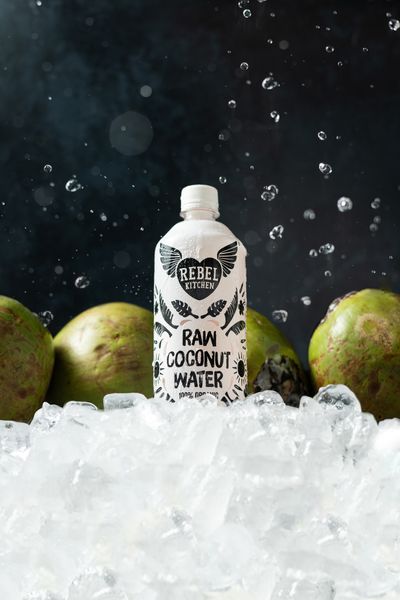So-called healthy drinks, the small print tells the big story
Published:
Read Time: 1 min
You might assume that ‘no added sugar’ in a juice drink sounds definitive, unambiguous. In reality that drink may have two added sweeteners, sucralose which is 600 times sweeter than table sugar, and/or acesulfame K at a modest 200 times sweeter.
Against this backdrop, Rebel Kitchen’s Coconut Water emerges like an evangelist. It has no added anything, nada. It is 100% green, organic coconut directly from smallholders in the Philippines. It comes with natural oxidants, as opposed to some big brand fruit juices, which are supplemented with the industrially produced ascorbic acid.
The final piece of the labelling subterfuge comes in the form of sodium nitrate, or it’s nom de plume NaNO3. This is a preservative, extending shelf life and sales margins.
“When we launched our coconut water, we wanted absolute authenticity and purity, from product to labelling,” said a source at Rebel Kitchen. “Sadly, even within coconut water brands there are issues of false claims about no added sugar, additives and even about using green coconuts themselves.”
Ends
Editors notes
Sucralose
The FDA considers it safe, not toxic or carcinogenic. Some say that more research is needed on the potential harmful effects of sucralose at high temperatures.
Acesulfame K
The FDA recommends an acceptable intake of 15mg per kg of body weight per day.
Ascorbic acid
Also known as vitamin C, produced industrially through a combination of chemical and fermentation processes.
Sodium nitrate
Industrially synthesised as a food preservative, although also as a fertiliser and an explosive. 2 HNO3 + Na2CO3 → 2 NaNO3 + H2O + CO

